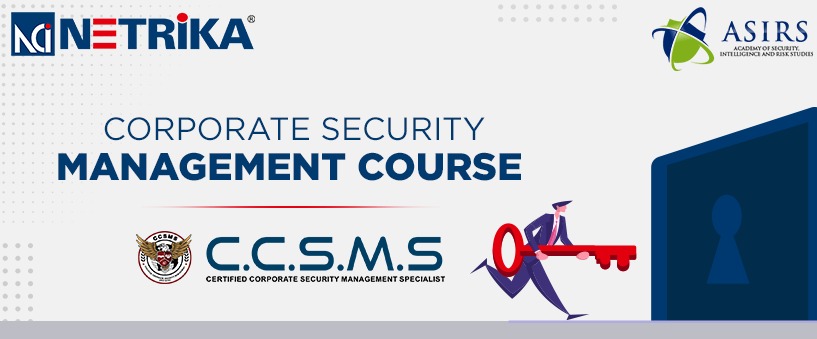
Corporate Security Management Course
Corporate Security Management Course
Corporate security management is an expanding vertical of a security portfolio that lays a foundation of a security framework using strategic concepts, principles, and models. A corporate security management specialist addresses the disruption in security technology while examining global risks encompassing them.
The corporate security management course highlights the vitality of strategic security positioning in the organizational landscape. This nurtures a collaborative business partnership while ascending the career graph of the corporate security management specialist.
For all the aspirants wishing to take their professional expertise in the corporate security management domain, we have combed the essential elements required to gain the certification:
Corporate security training courses
- Business & Corporate security management
It includes current corporate security, threat, challenges, principles, strategic structures, espionage in the corporate sector, economic & industrial vertical, success, failure, and consequences of corporate security management.
- Security risk & crisis management
It includes threats, challenges, emergency planning, response, risk mitigation, contingencies, countermeasures, business resiliency, and crisis management.
Corporate security management certification eligibility
Aspirants looking for a certification in corporate security management must hold a bachelor’s degree/diploma or its equivalent with one year of industrial experience in the relevant field.
Security management course fee: $1000
The course is spread over three days period covering 14 modules. Participants who complete all the courses within the stipulated time and have 75% attendance will achieve the CCSMS certification.
Core competencies of an aspiring corporate security management specialist
While a corporate security management certification adds value to your professional portfolio, it does require some inherent skills for a successful career. Therefore, it is pertinent to access one’s talent or hone them to benefit from the professional course. The core competencies working for the aspirant’s benefit can be:

